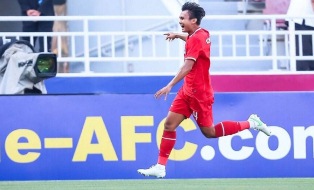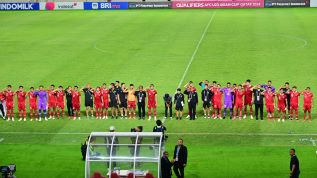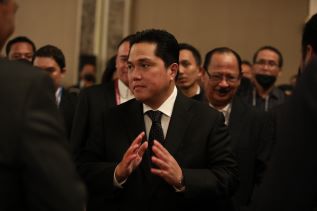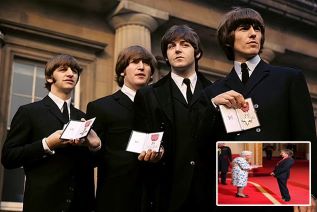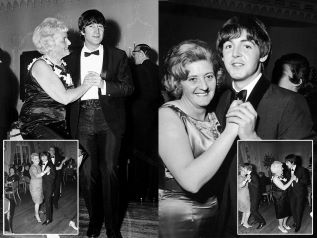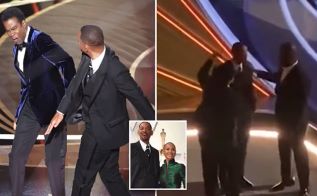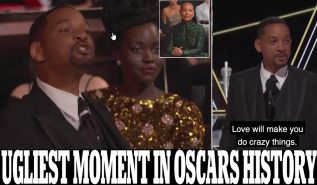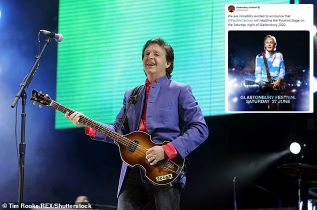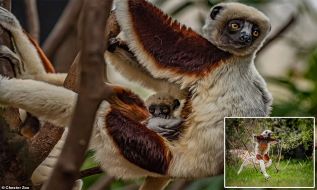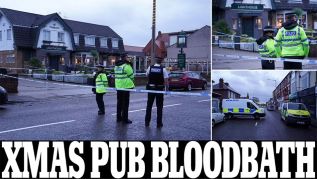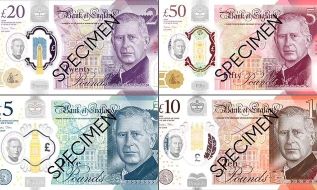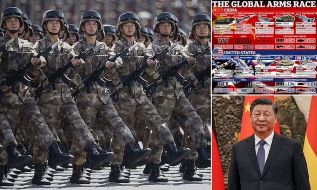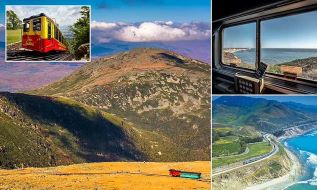Freemason Pengaruhi Inggris 190 Tahun, Ini Tokoh-tokoh Penting Masonik
How the UK`s Most Influential Masons Ruled Britain for 190 Years
Editor : Ismail Gani
Translator : Novita Cahyadi

ORGANISASI rahasia Freemason berasal dari Inggris tampaknya harus dirunut kembali setidaknya ke akhir abad ke-14. Freemason meyakini akar mereka - dan nama mereka, maupun simbol mereka - dikaitkan dengan tukang batu yang membangun katedral pada abad pertengahan, seperti Salisburry, dimulai pada 1220.
Tentu saja, pada akhir abad ke-17, ada beberapa kelompok-kelompok - sebagai sekelompok orang yang berafiliasi kepada Masonik ikenal - berada di sekitar Kepulauan Inggris, dengan setidaknya tujuh di London.
Kemudian ada empat kelompok di London yang sepakat berkumpul pada Juni 1717 untuk membentuk ´Grand Lodge´ pertama, yang diterbitkan di saat-saat awal dan terkait konstitusi tahun 1723.
Dalam beberapa dekade, para Mason mulai menarik sejumlah orang yang paling berpengaruh di masyarakat London, termasuk anggota dari keluarga kerajaan, seniman, dan penulis seperti William Hogarth dan Alexander Pope, dan anggota aristokrasi, sampai ke kalangan bangsawan.
Pada 1776, Freemason menyediakan ruangan pertemuan mewah yang mereka sebut sebagai Grand Lodge di Great Queen Street, London Tengah. Tempat tersebut kemudian diganti namanya oleh Masonik yang berjuluk Thirties menjadi Freemason Hall, seperti dilansir MailOnline.
Jaringan pengaruh mereka tersebar di seluruh Inggris dan masyarakat. Beberapa kelompok (disebut lodges) bertemu di bar dan penginapan - dan hari ini, banyak sopir taksi, tukang pipa dan bahkan tukang sampah adalah Mason. Ada dua lodges khusus untuk Mason wanita.
Sementara Freemason bersikeras pertemuan pribadi mereka dilatari konspirasi jahat, dan tidak bersifatuniversal. Pada akhir abad ke-18, misalnya, lodge di Brentford dituduh merencanakan untuk membunuh George III. Konspirasi tidak melakukan apa pun untuk mencegah kedua putranya, George IV dan William IV, menjadi anggota Mason.
Freemasonry sangat luar biasa perkembangannya pada dua perang dunia. Dalam tiga tahun setelah Perang Dunia I, 350 lodges yang didirikan, dan dalam tiga tahun setelah Perang Dunia II, hampir 600 lodges berdiri.
Freemason mengklaim hal ini disebabkan karena peningkatan jumlah pria yang ingin melanjutkan persahabatan dari para veteran perang tersebut, dan sedang mencari pusat kekuatan di tengah dunia yang sedang berubah dan tetap berniat mengubah dunia.´
Bagaimana tokoh-tokoh penting Freemason mempengaruhi Inggris selama 190 tahun, inilah tokoh-tokohnya di berbagai bidang....
Olahraga
Doulgas Robert Jardine: Bintang kriket Inggris dan kapten timnas pada 1932/1933.
Archibald Leitch: Arsitek dan perancang setidaknya 30 stadion sepak bola terkenal di Inggris termasuk Anfield, Highburry, Villa Park, Hampden Park dan White Hart Lane.
Kerajaan
Edward VII: Anak Ratu Victoria yang naik tahta di usia 59 pada 1901 yang sebelumnya dikenal dengan julukan ´Bertie´, Pangeran Inggris yang playboy. Dia juga dikenal karena kerakusannya pada wanita dan makanan enak.
Edward VIII: Pangeran berjuluk The Duke of Windsor yang turun tahta sebagai Raja Edward VIII setelah berkuasa kurang dari setahun lalu turun tahta karena memilih menikahi Wallis Simpson pada 1936.
George VI: Ayah dari Ratu Elizabeth II, George VI naik tahta menjadi Raja Inggris setelah kakaknya turun tahta hingga mangkat pada 1952. Dia memimpin Inggris diwarnai trauma dari Perang Dunia II.
Westminster dan Angkatan Bersenjata
Winston Churchill: Perdana Menteri sejak 1940 hingga 1945 dan kembali berkuasa pada 1951 hingga 1955. Sebelumnya dia adalah Panglima Armada Inggris Pertama yang memenangkan Hadiah Nobel untuk Literatur dan bahkan menjadi orang pertama yang dianugerahi warga terhormat oleh pemerintah Amerika Serikat.
The Duke of Wellington: Marsekal Arthur Wellesley, bergelar 1st Duke of Wellington, dianggap sebagai salah satu negarawan besar Inggris dan pahlawan militer. Dia menaklukkan Napoleon di Waterloo dan mematri namanya sebagai tokoh penting dalam sejarah.
Ilmu pengetahuan dan obat-obatan
Alexander Fleming: Ilmuwan Skotlandia yang membantu menemukan penisilin dan memenangkan Hadiah Nobel untuk Kedokteran pada 1945.
Edward Jenner: Dikenal sebagai penemu imunisasi dia juga disebut sebagai penyelamat hidup jutaan manusia dibanding tokoh lain dalam sejarah setelah ia menemukan vaksin cacar.
Bisnis
Thomas Telford: Salah satu insinyur besar Inggris yang membangun banyak jembatan, kanal dan jalan di Inggris dan Skotlandia, termasuk Jembatan Menai Suspension dan jalan A5.
William Hesketh Lever: pengusaha Inggris pertama yang kaya raya setelah memperkenalkan produk sabun mandi dan sabun cuci termasuk Lux dan Sunlight. Dia kemudian beralih ke dunia politik dan menjadi anggota parlemen untuk Wirral dan kemudian duduk di Majelis Tinggi Inggris.
Seni dan Sastra
Arthur Conan Doyle: Penulis dan pencipta tokoh Sherlock Holmes dan dipandang sebagai sosok yang mengubah penulisan kasus kriminal sepanjang masa.
Rudyard Kipling: Penulis dan penyair terkenal dengan karya pentingnya buku berjudul the Jungle Book.
FREEMASON´ origins in Britain seem to date back at least to the late 14th century. The Freemasons believe their roots — and their very name, and hence their symbols — lie in the masons who built the great medieval cathedrals, such as Salisbury, started in 1220.
Certainly, by the end of the 17th century, there were several lodges — as the individual Masonic societies are known — dotted around the British Isles, with at least seven in London.
It was in the capital that four lodges came together in June 1717 to form the first ‘Grand Lodge’, which published its first minutes and constitution in 1723.
Within a few decades, the Masons started to attract to their number some of the most influential men in London society, including members of the Royal Society, artists and writers such as William Hogarth and Alexander Pope, and members of the aristocracy, right up to dukes.
In 1776, the Freemasons opened a sumptuous hall as their Grand Lodge in Great Queen Street, Central London. This was replaced in the Thirties by the monolithic Freemasons’ Hall.
Their web of influence spread throughout the country and society. Some lodges met at taverns and inns — and today, many taxi drivers, plumbers and even dustmen are Masons. There are two lodges for women Masons.
While the Freemasons insist their private meetings do not mask anything nefarious, that was not universally so. In the late 18th century, for example, a lodge in Brentford was accused of plotting to kill George III. The conspiracy did nothing to deter his two sons, George IV and William IV, from becoming Masons.
Freemasonry really took off in the wake of the two world wars. In the three years after World War I, 350 lodges were established, and in three years after World War II, nearly 600 were set up.
The Freemasons claim this was due to an increased number of men ‘who wanted to continue the camaraderie they had built up during their war service, and were looking for a calm centre in a greatly changed and changing world’.
How the UK´s most influential Masons ruled Britain for 190 years....
Sport
Douglas Robert Jardine: Celebrated England cricketer and captain during the famous bodyline tour of 1932/1933.
Archibald Leitch: Architect and designer of at least 30 of Britain´s most famous football stadiums including Anfield, Highbury, Villa Park, Hampden Park and White Hart Lane.
Royalty
Edward VII: Queen Victoria´s son who took the throne aged 59 in 1901 was previously known to everyone as ‘Bertie’, the playboy Prince of Wales. He was known for his insatiable appetite for women and food.
Edward VIII: The Duke of Windsor abdicated as King Edward VIII after less than a year on the throne to be with his future wife Wallis Simpson in 1936.
George VI: The Queen´s father George VI was King after his brother gave up the throne until his death in 1952. He saw Britain through the trauma of the Second World War.
Westminster and Armed Forces
Winston Churchill: Prime Minister from 1940 to 1945 and again from 1951 to 1955. Before that he was First Lord of the Admirality won the Nobel Prize for Literature and even the first person to be made an honorary citizen of the United States.
The Duke of Wellington: Field Marshal Arthur Wellesley, 1st Duke of Wellington, is considered one of Britain´s great statesmen and military heroes. His thrashing of Napoleon at Waterloo has cemented his place in history.
Science and Medicine
Alexander Fleming: Scottish scientist who helped discover Penicillin and won the Nobel Prize for Medicine in 1945.
Edward Jenner: Known as the father immunisation he is also credited with saviong more lives than any other person in history after he created a vaccine for smallpox.
Business
Thomas Telford: One of Britain´s great engineers he built bridges, canals and roads across England and Scotland, including the Menai Suspension Bridge and the A5 road.
William Hesketh Lever: British businessman first made his money making famous soaps with brands including Lux and Sunlight. He later turned to politics and became an MP for Wirral and later sat in the House of Lords.
Arts and Literature
Arthur Conan Doyle: Writer and creator of Sherlock Holmes seen as changing the face of crime writing forever.
Rudyard Kipling: Author and poet most famous for creating the Jungle Book.

